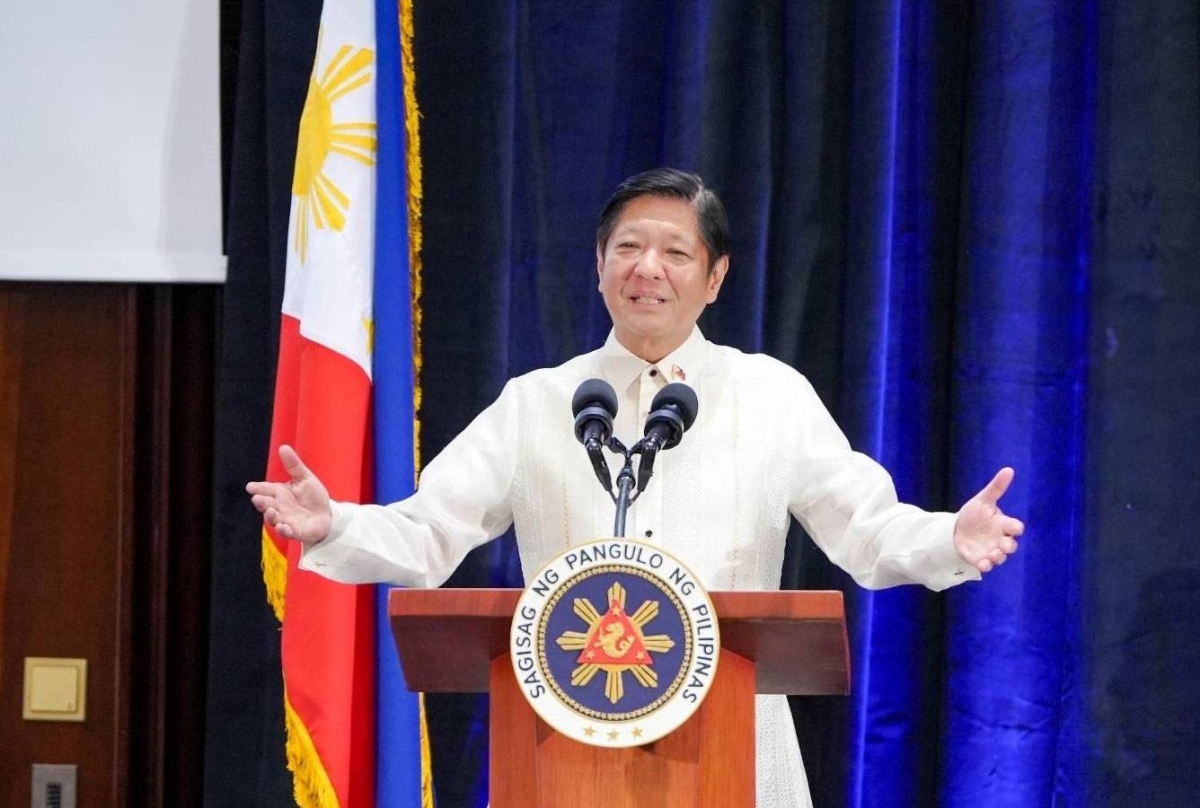President Marcos Calls on Filipinos to Emulate the Compassion and Grace of Jesus Christ
President Ferdinand Marcos Jr. recently delivered a heartfelt message to all Filipinos, urging them to follow in the footsteps of Jesus Christ by serving others with compassion and grace. In his message, posted on his official Facebook page on Maundy Thursday, the President emphasized the importance of reflecting on the love and selflessness of Jesus Christ and finding ways to spread love and understanding in our communities.
Reflecting on the Teachings of Jesus Christ
President Marcos expressed his hope that as Filipinos reflect on the teachings of Jesus Christ during this holy season, they would also be inspired to serve others with the same compassion and grace. He highlighted the significance of using this time of contemplative silence to not only better oneself but also extend kindness and selflessness, especially towards the less fortunate in society.
Unity, Kindness, and Solidarity
The President acknowledged the challenges faced by many Filipinos, particularly in these trying times, and emphasized the need for unity and solidarity. He encouraged Filipinos to look beyond their personal struggles and extend a helping hand to those who are in need. President Marcos emphasized that by emulating the compassion and grace of Jesus Christ, Filipinos can create a society that is built on love, understanding, and empathy.
Fostering Community and Togetherness
Furthermore, President Marcos highlighted the importance of fostering a sense of community and togetherness. He urged Filipinos to reach out to their neighbors, friends, and even strangers, to offer support and assistance. The President emphasized that by coming together as a nation, Filipinos can overcome any challenge and build a brighter future for all.
Practicing Forgiveness and Reconciliation
President Marcos also stressed the significance of practicing forgiveness and reconciliation. He reminded Filipinos that Jesus Christ forgave those who wronged him and encouraged his followers to do the same. The President urged Filipinos to let go of grudges and animosity and instead embrace forgiveness and understanding. He emphasized that by doing so, Filipinos can contribute to the healing and unity of the nation.
Emulating Jesus Christ’s Compassion and Grace
In conclusion, President Ferdinand Marcos Jr. called on all Filipinos to emulate the compassion and grace of Jesus Christ. He urged them to use this holy season as an opportunity to reflect on their actions and find ways to serve others with love and understanding. The President emphasized the importance of unity, kindness, and forgiveness in building a better future for the nation. He expressed his belief that by following in the footsteps of Jesus Christ, Filipinos can create a society that is rooted in compassion, grace, and solidarity.
The Significance of President Marcos’s Message for the Filipino People
President Marcos’s call to emulate Jesus Christ’s compassion and grace resonates deeply with the Filipino people, who are known for their strong religious beliefs and values. The message serves as a reminder of the importance of embodying the spirit of love and selflessness, not just during Holy Week but throughout the year.
A Universal Message of Love and Compassion
President Marcos’s call to action resonates with this deeply rooted belief system, encouraging Filipinos to put their faith into practice by engaging in acts of service and kindness. By encouraging Filipinos to engage in acts of service and kindness, President Marcos acknowledges the power of collective action in building a stronger and more compassionate society.
Relevance for an International Audience
Expanding on the idea of contextualizing the message for an international audience, it is important to consider the cultural nuances and beliefs of different countries and regions. President Marcos’s message, rooted in compassion and grace, can resonate with people from diverse backgrounds, but it is crucial to adapt the language and references to ensure clarity and understanding.
For instance, when discussing the significance of Maundy Thursday, it would be helpful to provide a brief explanation of its religious and historical context. This would enable readers who are unfamiliar with Christian traditions to grasp the importance of the day and its connection to the message of compassion and service.
In addition to religious references, it is essential to address socio-economic disparities in a way that is relevant to an international audience. While the term “less fortunate” may be understood broadly, it is important to acknowledge that the specific challenges faced by marginalized communities vary across countries. By providing examples or statistics that highlight the global nature of social inequality, the message can resonate more deeply with readers from different parts of the world.
Moreover, the concept of utilizing a “hallowed time of contemplative silence” can be expanded upon to emphasize the value of self-reflection and personal growth in different cultural contexts. In some societies, meditation and mindfulness practices are deeply ingrained, and the idea of taking time for introspection aligns with their existing beliefs and practices. By drawing parallels between President Marcos’s message and these cultural practices, the universality of the call for personal betterment can be further emphasized.
Overall, by taking into account the cultural diversity and unique perspectives of an international audience, President Marcos’s message can be effectively contextualized and made accessible to a broader range of readers. By providing explanations, expanding on references, and highlighting the global relevance of the underlying principles, the message can transcend borders and resonate with people from various cultural backgrounds.







